Phobias
A phobia is an intense (usually excessive) fear that occurs in the presence of an animal, object, or situation. Phobias are very common and most people can manage in their lives without ever seeking treatment because when they are not in front of the feared stimulus, they are not thinking about it. This works so long as it does not seem to cause any significant disruptions in your life.
Phobias are very common and are generally fairly simple to treat. People generally only come to get treatment for phobias when they ‘have to’. For instance, if you fear snakes and live in the city, your phobia is unlikely to ever get triggered.
However, phobias can cause problems when people do need to come into contact with the feared object / situation – like having a fear of flying (Or like Shane Warne’s phobia of spiders)! Having a fear of flying is a very common phobia, and can be problematic if you need to fly for work or pleasure. A quick-fix may be to take a sedative, but this may leave you feeling groggy, and this does not actually get rid of the Anxiety. Similarly, avoiding spiders – or having others ‘deal with’ the spider so you do not have to – may reduce your anxiety in the short term, but it does not actually eliminate your anxiety.
More debilitating phobias include:
Having an extreme fear of an activity, object or situation due to a past unresolved trauma that gets in the way of you being able to function or live a meaningful life. This is definitely something to seek professional help for because it is unlikely that the fear will resolve itself untreated, and worse – it may generalize to other situations that are not currently threatening. For instance, sometimes people who have had a serious car accident can develop fears about being in cars that can later generalize to being in any vehicle (bus, train, ferry, or even escalator or lift).
Other common phobias include: having a fear of driving over specific things such as bridges (fear of heights) or driving through tunnels (Claustrophobia). Or, a fear of leaving the house or being in open or public spaces (Agoraphobia). Note. A fear of having a Panic Attack is different to a specific phobia – but it is also treatable (see here).
Treatment Options
Although Medications may be helpful to reduce the amount of arousal we may experience (which may in turn lessen our anxiety and reduce the frequency of panic attacks), there is no medication that can ‘stop all anxiety’ or ‘end all phobias’. Medications also can have negative side-effects. Moreover, once you remove the medication because nothing new had been ‘learned’ the anxiety typically returns. Thus, the following adage is true of medication: “Skills are not in Pills”.
Because avoidance maintain anxiety, both Self-Help and therapist-led treatments exist. There are many Self-Help articles in my Resource Section. Therapist-led treatments for phobias, trauma and anxiety are also very effective and include Exposure and Response Prevention (ERP), Eye-Movement & Desensitization Therapy (EMDR Therapy), Cognitive Behaviour Therapy (CBT), and Acceptance & Commitment Therapy (ACT). Read more about these treatments here.
Regardless of which direction you take on your recovery journey, what is most helpful with anxiety is a combination of education (about how anxiety affects both the mind and the body), learning and practicing a combination of self-regulation skills to help you soothe and regulate your nervous system, and continuing to expose yourself to situations that challenge you in incremental ways (using skills that build your confidence) so that you can show yourself you can cope and that you are in fact safe.
Therapy may ultimately be more helpful than Self-Help, because the treatment can be targeted to your own specific situation and needs. Paradoxically, often the more we expose ourselves to our anxieties (in incremental ways in conjunction with skills, as mentioned above), the more comfortable (and less anxious) we ultimately will feel.
Resources
- Learn about your Window of Tolerance
- Calm yourself immediately, with this powerful breathing technique
- Learn about your Brain’s 3 Emotion Regulation Systems
- Learn about Mindfulness
- Understanding the Physiology of Self-Criticism
- Learn about how EMDR Therapy can help with fear and trauma
- To access all Self-Help articles I have written visit this page
Other Anxiety Disorders:
- Intense excessive worry about social situations (Social Anxiety Disorder)
- Persistent, excessive or unrealistic worries (Generalized Anxiety Disorder)
- Obsessive thoughts and repetitive behaviours that you can’t seem to control (Obsessive Compulsive Disorder)
- Panic attacks (Panic Disorder)
- Upsetting memories and agitation or numbness following a traumatic event that interferes with ability to function in life (Post Traumatic Stress Disorder).

Understanding and Breaking Patterns: The Science of Changing Behaviour
Struggling with repetitive behaviors like avoidance, self-criticism, or anxiety? Learn how to break free by understanding the underlying patterns. Discover practical strategies to intervene effectively and build healthier habits, here.

How to Get the Most Out of Therapy
Are you new to therapy? Working with a psychologist is very different to visiting a doctor. Learn about what to expect and how you can get the most out your therapy experience, here.
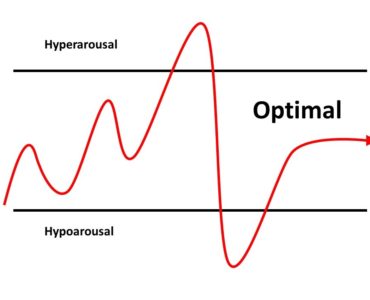
Understanding Your Window of Tolerance
Your Window of Tolerance is the zone of arousal in which you are able to function most effectively. The size of your Window of Tolerance depends on how much you can tolerate mild fluctuations in mood, energy levels, and the challenges and demands of life, whilst remaining in the Optimal Zone. Lean to work with your Window of Tolerance, here.
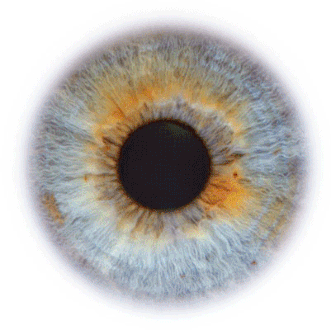
Healing Trauma with EMDR Therapy
EMDR Therapy is a unique and powerful approach that can free you from the pain of the past. Developed over 30 years ago to treat Trauma, EMDR Therapy now has far-reaching applications and is useful whenever memories are causing a person significant physical, or psychological upset.

How Your Early Attachment Experiences Shape You
Attachment-related emotional learning that occurs in the first 15 years of life can either serve as a protective factor against life’s challenges or can lead to difficulties in emotion regulation, relationships, & mental health vulnerabilities carried into adulthood. Discover how your attachment experiences have shaped you and how you can begin to heal from the wounds of your past.

Your Brain’s 3 Emotion Regulation Systems
The majority of mental health problems relate to an imbalance of 3 very important systems. From anxieties about the future, or shame and rumination about the past; to attacking one’s self for our failures with harsh self-criticism. There is no peace when being driven by Threat! Learn how to soothe your Threat system so that you can comfort, soothe & support yourself.
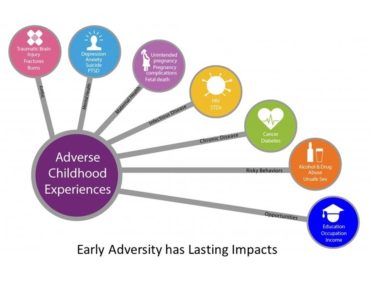
Adverse Childhood Experiences (ACEs)
Toxic stress from ACEs can change the brain, effectively narrowing our Window of Tolerance and making us susceptible to chronic mental health and medical conditions. Effects of toxic stress can be passed on intergenerationally, but can also be significantly lessened by protective factors. Learn about ACEs and what you can do to help yourself, here.
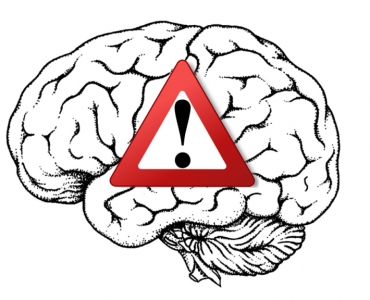
Your Brain’s Threat System
Your threat system is designed to protect you from danger. It is about SURVIVAL! However, excessive threat can overwhelm us and can spiral into hopelessness & self-criticism. Learn about how to manage your threat system here.

Negative Thinking – What your poor brain doesn’t know…
When we are on ‘autopilot’ we are often unaware that our mind’s focus can be threatening and that this is contributing to psychological distress. Conversely, the information from our 5 senses is generally an untapped haven of calm, soothing, stillness and peace – Learn how you can use this knowledge to your advantage to free yourself from overthinking.

Soothing Rhythm Breathing
Many clients report that this breathing technique is one of the most helpful emotion-regulation skills that they learn in therapy. Learn to quickly deactivate your ‘fight/flight’ response & activate your soothing system with this powerful breathing technique.

Meaning & Purpose: What Truly Matters to YOU ?
Are you stuck making the same choices over and over, even though this is not helping you move towards what you want in life? Learn practical ways to decide what is most important to you and how to keep yourself on track, here.

What is Mindfulness ?
Mindfulness can increase self-awareness, can help you self-regulate & can help you choose how best to respond to challenging situations. But Mindfulness is hugely misrepresented and many false claims abound. Although mindful awareness is essential, Mindfulness alone is not enough. Learn what Mindfulness is, how to make use of it, and what else you need in order to make positive changes, here…
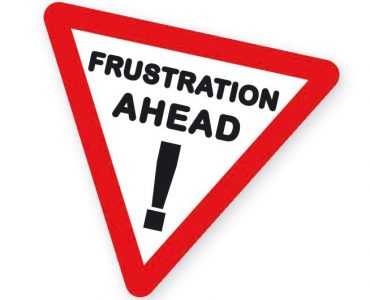
Common Obstacles in Learning Mindfulness
People encounter common obstacles when trying to learn Mindfulness. You can save yourself time, effort & frustration by understanding and planning for these difficulties. Enjoy the maximal benefits of Mindfulness with least amount of effort, here.
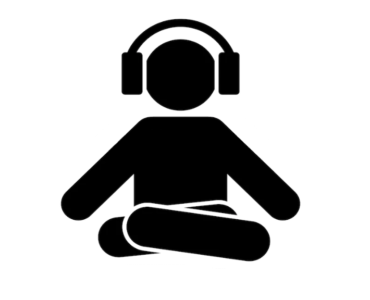
Guided Mindfulness Audio Exercises
Access guided Mindfulness exercises here. Increase your awareness, improve your resilience. Learn how to respond (vs react). Cultivate inner-peace, now.

Mindfulness & Your DNA
People who engage in a regular mindfulness practice are more likely to process (than avoid) their emotions, and report less stress and increased happiness. The benefits of regular mindfulness practice can now be measured at the DNA level. Take a closer look here.

The Physiology of Self-Criticism
Self-criticism activates the threat system and is a common problem across all mental health difficulties. Learn about the powerful effects of self-criticism on your emotions, your brain, and your physiology. Also learn about your most powerful antidote: Self-compassion.

Dealing with Your ‘Inner-Critic’
‘Self-talk’ is great when it helps us – but self-criticism can be painful and destructive! If you speak to yourself in judgmental, shaming, self-critical, or hurtful ways – this is likely the voice of your ‘inner-critic’. Learn helpful ways of responding to your ‘inner-critic’ here…

Compassion – A brief overview
Compassion is one of the most beneficial things from psychological science that you can learn – but unfortunately it is also poorly misunderstood. Compassion does NOT mean ‘being nice’ or ‘having empathy’ – This article will discuss what compassion is and how it can help you reduce your suffering.

The Benefits of Self-Compassion
Self-compassion is one of most helpful (but most difficult) of all psychological skills. Self-compassion can help you work with difficult feelings such as anger and intense shame or harsh self-criticism, and unlike your inner-critic, self-compassion can help you soothe and nurture yourself when you are at your most distressed. However, often due to our upbringing and due to commonly held myths around it – self-compassion is typically misunderstood, feared, avoided or blocked. Learn what self-compassion is, how it gets blocked, & how you can help yourself, here.

Fears, Blocks & Resistances to Compassion
Compassion requires awareness, immense courage and specific skills. However, often due to our emotional learning, many of us react with fears, blocks & resistances. Learn about why this is, and how you can allow more of this light in.

How to Get a Better Night’s Sleep
Having trouble sleeping? Poor sleep increases irritability, reduces concentration & can negatively affect our mood. Use the following tips to improve your sleep today!

Heart Rate Variability & Mental Health
Heart Rate Variability (HRV) is a measure of your ability to handle psychological stress. Low HRV is related to negative emotions such as anger, depression, anxiety, rumination, and self-criticism. Learn about HRV and how you can easily improve it and increase your ability to handle stress and difficult emotions, here.

The Mental Health Benefits of Nature
Nature is good for our mental and physical health. Exposure to Nature can have powerful restorative effects that promote recovery from physiological and psychological stress. Discover ways you can immerse yourself in nature, and cultivate a state of mind that is most receptive to its benefits.

How to Get the Most Out of Therapy
Are you new to therapy? Working with a psychologist is very different to visiting a doctor. Learn about what to expect and how you can get the most out your therapy experience, here.

Understanding and Breaking Patterns: The Science of Changing Behaviour
Struggling with repetitive behaviors like avoidance, self-criticism, or anxiety? Learn how to break free by understanding the underlying patterns. Discover practical strategies to intervene effectively and build healthier habits, here.

Understanding Your Window of Tolerance
Your Window of Tolerance is the zone of arousal in which you are able to function most effectively. The size of your Window of Tolerance depends on how much you can tolerate mild fluctuations in mood, energy levels, and the challenges and demands of life, whilst remaining in the Optimal Zone. Lean to work with your Window of Tolerance, here.

Healing Trauma with EMDR Therapy
EMDR Therapy is a unique and powerful approach that can free you from the pain of the past. Developed over 30 years ago to treat Trauma, EMDR Therapy now has far-reaching applications and is useful whenever memories are causing a person significant physical, or psychological upset.

How Your Early Attachment Experiences Shape You
Attachment-related emotional learning that occurs in the first 15 years of life can either serve as a protective factor against life’s challenges or can lead to difficulties in emotion regulation, relationships, & mental health vulnerabilities carried into adulthood. Discover how your attachment experiences have shaped you and how you can begin to heal from the wounds of your past.

Your Brain’s 3 Emotion Regulation Systems
The majority of mental health problems relate to an imbalance of 3 very important systems. From anxieties about the future, or shame and rumination about the past; to attacking one’s self for our failures with harsh self-criticism. There is no peace when being driven by Threat! Learn how to soothe your Threat system so that you can comfort, soothe & support yourself.

Adverse Childhood Experiences (ACEs)
Toxic stress from ACEs can change the brain, effectively narrowing our Window of Tolerance and making us susceptible to chronic mental health and medical conditions. Effects of toxic stress can be passed on intergenerationally, but can also be significantly lessened by protective factors. Learn about ACEs and what you can do to help yourself, here.

Your Brain’s Threat System
Your threat system is designed to protect you from danger. It is about SURVIVAL! However, excessive threat can overwhelm us and can spiral into hopelessness & self-criticism. Learn about how to manage your threat system here.

Negative Thinking – What your poor brain doesn’t know…
When we are on ‘autopilot’ we are often unaware that our mind’s focus can be threatening and that this is contributing to psychological distress. Conversely, the information from our 5 senses is generally an untapped haven of calm, soothing, stillness and peace – Learn how you can use this knowledge to your advantage to free yourself from overthinking.

Soothing Rhythm Breathing
Many clients report that this breathing technique is one of the most helpful emotion-regulation skills that they learn in therapy. Learn to quickly deactivate your ‘fight/flight’ response & activate your soothing system with this powerful breathing technique.

Meaning & Purpose: What Truly Matters to YOU ?
Are you stuck making the same choices over and over, even though this is not helping you move towards what you want in life? Learn practical ways to decide what is most important to you and how to keep yourself on track, here.

What is Mindfulness ?
Mindfulness can increase self-awareness, can help you self-regulate & can help you choose how best to respond to challenging situations. But Mindfulness is hugely misrepresented and many false claims abound. Although mindful awareness is essential, Mindfulness alone is not enough. Learn what Mindfulness is, how to make use of it, and what else you need in order to make positive changes, here…

Common Obstacles in Learning Mindfulness
People encounter common obstacles when trying to learn Mindfulness. You can save yourself time, effort & frustration by understanding and planning for these difficulties. Enjoy the maximal benefits of Mindfulness with least amount of effort, here.

Guided Mindfulness Audio Exercises
Access guided Mindfulness exercises here. Increase your awareness, improve your resilience. Learn how to respond (vs react). Cultivate inner-peace, now.

Mindfulness & Your DNA
People who engage in a regular mindfulness practice are more likely to process (than avoid) their emotions, and report less stress and increased happiness. The benefits of regular mindfulness practice can now be measured at the DNA level. Take a closer look here.

The Physiology of Self-Criticism
Self-criticism activates the threat system and is a common problem across all mental health difficulties. Learn about the powerful effects of self-criticism on your emotions, your brain, and your physiology. Also learn about your most powerful antidote: Self-compassion.

Dealing with Your ‘Inner-Critic’
‘Self-talk’ is great when it helps us – but self-criticism can be painful and destructive! If you speak to yourself in judgmental, shaming, self-critical, or hurtful ways – this is likely the voice of your ‘inner-critic’. Learn helpful ways of responding to your ‘inner-critic’ here…

Compassion – A brief overview
Compassion is one of the most beneficial things from psychological science that you can learn – but unfortunately it is also poorly misunderstood. Compassion does NOT mean ‘being nice’ or ‘having empathy’ – This article will discuss what compassion is and how it can help you reduce your suffering.

The Benefits of Self-Compassion
Self-compassion is one of most helpful (but most difficult) of all psychological skills. Self-compassion can help you work with difficult feelings such as anger and intense shame or harsh self-criticism, and unlike your inner-critic, self-compassion can help you soothe and nurture yourself when you are at your most distressed. However, often due to our upbringing and due to commonly held myths around it – self-compassion is typically misunderstood, feared, avoided or blocked. Learn what self-compassion is, how it gets blocked, & how you can help yourself, here.

Fears, Blocks & Resistances to Compassion
Compassion requires awareness, immense courage and specific skills. However, often due to our emotional learning, many of us react with fears, blocks & resistances. Learn about why this is, and how you can allow more of this light in.

How to Get a Better Night’s Sleep
Having trouble sleeping? Poor sleep increases irritability, reduces concentration & can negatively affect our mood. Use the following tips to improve your sleep today!

Heart Rate Variability & Mental Health
Heart Rate Variability (HRV) is a measure of your ability to handle psychological stress. Low HRV is related to negative emotions such as anger, depression, anxiety, rumination, and self-criticism. Learn about HRV and how you can easily improve it and increase your ability to handle stress and difficult emotions, here.

The Mental Health Benefits of Nature
Nature is good for our mental and physical health. Exposure to Nature can have powerful restorative effects that promote recovery from physiological and psychological stress. Discover ways you can immerse yourself in nature, and cultivate a state of mind that is most receptive to its benefits.
About Me:
Dr Andreas Comninos
PhD Clinical Psychologist
I am a PhD Clinical Psychologist with over 15 years’ experience. My intentions are to help you to feel safe and respected, to collaborate with you to set clear treatment goals, and to facilitate an exploration of yourself and your situation in ways that regular conversations do not normally allow. Together, I hope we can discover constructive ways to improve your situation and your relationship with yourself and others.
My expertise and training draws from the latest evidenced-based ways to work with the mind, the body and all difficult emotions. My listening skills allow me to identify stuck patterns and unexpressed needs. I can help you to find new ways of responding to difficult situations, and I can help you to develop more resilience in the face of life’s challenges so you live with more meaning and purpose.
Medicare rebates are available for all Australians for up to 10 sessions each year with a GP referral and a mental health care plan. No matter where you live in Australia, Medicare rebates apply for all face-to-face and Telehealth consultations.
For immediate self-help, I have written practical articles containing tools to help you with a wide-range of topics. These articles are available here. If you are new to therapy, I recommend that you read this article to help you get the most out of therapy.
I look forward to working with you.

Dr Andreas Comninos
B.Psych (Hons), PhD (Clin Psych), MAPS, EMDRAA
PhD Clinical Psychologist
EMDRAA Accredited Practitioner
Psychology Board Approved Supervisor
Dr Andreas Comninos
PhD Clinical Psychologist
EMDRAA Accredited Practitioner
Psychology Board Approved Supervisor
B.Psych (Hons), PhD (ClinPsych), ACBS, MAPS

About me.
I am a PhD Clinical Psychologist with over 15 years’ experience. My intentions are to help you to feel safe and respected, to collaborate with you to set clear treatment goals, and to facilitate an exploration of yourself and your situation in ways that regular conversations do not normally allow. Together, I hope we can discover constructive ways to improve your situation and your relationship with yourself and others.
My expertise and training draws from the latest evidenced-based ways to work with the mind, the body and all difficult emotions. My listening skills allow me to identify stuck patterns and unexpressed needs. I can help you to find new ways of responding to difficult situations, and I can help you to develop more resilience in the face of life’s challenges so you can live with more meaning and purpose.
Medicare rebates are available for all Australians for up to 10 sessions each year with a GP referral and a mental health care plan. No matter where you live in Australia, Medicare rebates apply for all face-to-face and Telehealth consultations.
For immediate self-help, I have written practical articles containing tools to help you with a wide-range of topics. These articles are available here. If you are new to therapy, I recommend that you read this article to help you get the most out of therapy.
I look forward to working with you.
Book an Appointment
Mindfulness &
Clinical Psychology Solutions